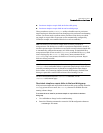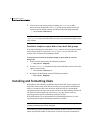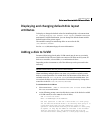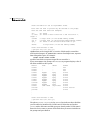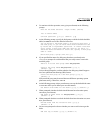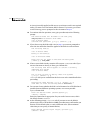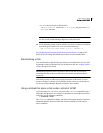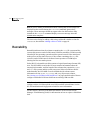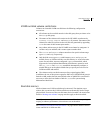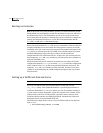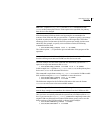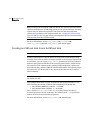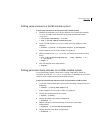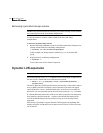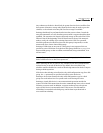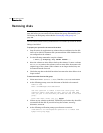
103Administering disks
Rootability
VxVM root disk volume restrictions
Volumes on a bootable VxVM root disk have the following configuration
restrictions:
■ All volumes on the root disk must be in the disk group that you choose to be
the bootdg disk group.
■ The names of the volumes with entries in the LIF LABEL record must be
standvol, rootvol, swapvol, and dumpvol (if present). The names of the
volumes for other file systems on the root disk are generated by appending
vol to the name of their mount point under /.
■ Any volume with an entry in the LIF LABEL record must be contiguous. It
can have only one subdisk, and it cannot span to another disk.
■ The rootvol and swapvol volumes must have the special volume usage
types root and swap respectively.
■ Only the disk access types auto with format hpdisk, and simple are
suitable for use as VxVM root disks, root disk mirrors, or as hot-relocation
spares for such disks. An auto-configured cdsdisk format disk, which
supports the Cross-platform Data Sharing (CDS) feature, cannot be used.
The
vxcp_lvmroot and vxrootmir commands automatically configure a
suitable disk type on the physical disks that you specify are to be used as
VxVM root disks and mirrors.
■ The volumes on the root disk cannot use dirty region logging (DRL).
In addition, the size of the private region for disks in a VxVM boot disk group is
limited to 1MB, rather than the usual default value of 32MB. This restriction is
necessary to allow the boot loader to find the /stand file system during
Maintenance Mode Boot.
Root disk mirrors
All the volumes on a VxVM root disk may be mirrored. The simplest way to
achieve this is to mirror the VxVM root disk onto an identically sized or larger
physical disk. If a mirror of the root disk must also be bootable, the restrictions
listed in “Booting root volumes” on page 104 also apply to the mirror disk.
Note: If you mirror only selected volumes on the root disk and use spanning or
striping to enhance performance, these mirrors are not bootable.
See “Setting up a VxVM root disk and mirror” on page 104 for details of how to
create a mirror of a VxVM root disk.



